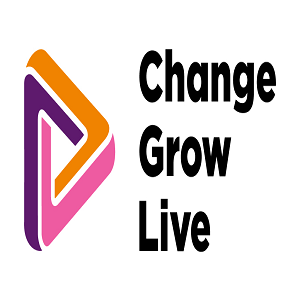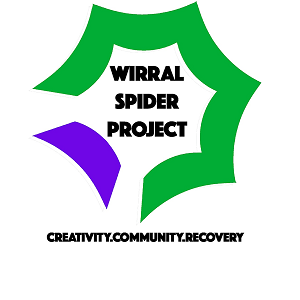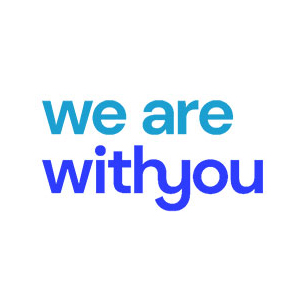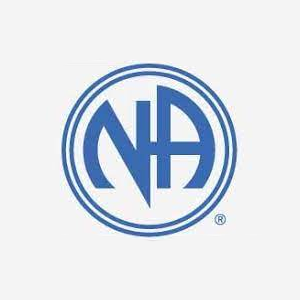Drug & Alcohol Rehab in Birkenhead

How Does Rehab Work?
Rehab includes many strategies that are created to address individual addiction with support, wellness methods, and steps to restoring balance. Clients are introduced to educational, supportive, and therapeutic programmes that are led by experienced and professional therapists. Along with individual therapy, individuals can benefit from the support received from group sessions. Addictions are treated through a residential or an outpatient programme. If you enter an inpatient rehab programme, the programme requires that you remain inside the centre or the facility with limited access to the outside world. Outpatient services are an option for those with less severe dependencies and will meet with a counsellor weekly while attending work and staying at home.
What Happens During Residential Rehab?
When you are ready to enter rehab for drug and/or alcohol addiction, it is a courageous step towards recovery. Although achieving balance and breaking the cycle of dependence takes some work, it can be achieved. To assist you to make an informed decision concerning rehab, we look at the options available and what happens during rehab.
Rehabilitation from addiction starts with a professional medical evaluation. This evaluation or assessment helps the professional decide which treatment option is most suited to your circumstances. Therapy differs from one person to the next depending on the history of drug or alcohol use and the presence of comorbidities (such as bipolar).
Assessments are followed by alcohol or drug detoxification. Individuals who enter detox will begin withdrawing from substances including alcohol, as the body returns to a normal state of function. This timeline will differ depending on the type of drug used and the length of dependency. Only when the body no longer contains the drug will individuals participate in a treatment plan.
During rehab, you will receive therapy. Therapy can be accessed on an inpatient or outpatient programme. Therapy ranges from individual counselling including Cognitive Behavioural Therapy, skill-building and group therapy.
1. Assessment

Before treatment can be delivered, a medical assessment is provided. This involves an in-depth look at individual medical history, substance use, and the presence of mental health disorders. Clients can be accommodated with an assessment by phone. An admissions team will be responsible for the telephone assessment to determine the best form of therapy for your needs. Along with determining a treatment plan, the admissions team or medical staff will have accurate information to facilitate the detox process.
To help you or someone you know, receive the best possible therapy for addiction and substance use, it is important to receive an individual assessment by a dedicated professional. The assessment will aid the course of therapy including treatment for people with comorbid illnesses such as anxiety.
2. Detox

If you are addicted to drugs and/or alcohol or you have a substance in your body, you must undergo detoxification before you can proceed with a recovery programme. Detox is performed in a residential rehab or a medical facility. During detoxification, the substance is gradually cleared from the body which usually results in withdrawal symptoms.
It is recommended to have a managed medical detox because experienced staff is readily available to help you through withdrawal. As the drug is removed, you may start to experience withdrawal symptoms. Without professional help, there is a higher risk of relapsing. Detox is followed by a fully tailored therapeutic programme. You can attend inpatient or outpatient therapy that is lead by trained addiction counsellors and a dedicated team.
3. Therapy

Therapy begins when the body is cleared of substances and/or alcohol. The choice of being assigned to an inpatient or an outpatient service will depend on the individual assessment, budget, and life commitments. Therapy that is offered in treatment ranges from individual counselling with a therapist, the attendance of group therapy, and emphasis on building positive coping mechanisms as well as life skills.
Step by Step Process for Residential Rehab
To understand your medical and mental health history.
Arrange a suitable date to begin your journey to recovery.
Begin the managed withdrawal process from substances including alcohol.
To understand the root cause of addiction and how to overcome it.
Aftercare is provided to help manage the risk of relapse.
To help heal the wounds that addictive behaviour has caused others.
Find your Nearest Rehab Centre near Birkenhead
The nearest rehab centre is Substance Rehabilitation.
Address: Substance Rehabilitation, 45 Belmont Dr, Liverpool L6 7UW, United Kingdom
Call 0333 4444 432 to discuss your alcohol or drug rehab requirements and any other questions you may have about the process of residential rehab.
Outpatient Addiction Services in Birkenhead
From inpatient to outpatient services, the right treatment for substance dependence will depend on the assessment and budget to determine the appropriate treatment option for you. For those who are interested in the flexibility and the affordability of outpatient addiction services, we take a closer look at what it entails compared with an inpatient programme.
An outpatient programme doesn’t require you to remain at the clinic for therapy. If you have work, family, or other commitments, outpatient services allow you to focus on these commitments while visiting a centre or counsellor to receive addiction therapy and other care services.
Private Outpatient services include therapy with counselling sessions provided by a therapist/counsellor. Sessions typically last up to 90 minutes. Free addiction treatment does exist through one of the many reputable charities in the UK (Turning Point), but it does not provide the same individualised care that private services provide.
NHS Free addiction services in Birkenhead

Birkenhead Hub 84 Market Wells Market Street Birkenhead Merseyside CH41 6HB
Website
56 Hamilton Street Birkenhead Merseyside CH41 5HZ
Website
83-93 Stonebridge Lane Croxteth Liverpool Merseyside L11 4SJ
WebsiteThe Benefits of Outpatient Services
Private Outpatient addiction services also provide tailored care for those looking for the best possible support and success in recovery. – Owing to the flexibility of outpatient care, it can facilitate a wide range of individuals and financial situations. Recovery sessions are attended once or twice weekly under the guidance of a certified therapist. – It is more cost-effective compared with an inpatient programme.
The Challenges of Outpatient Services
Outpatient services will always have an important role in rehab but for drug or alcohol addiction, staying in the same environment with access to substances and regular social circles is likely to risk relapse. Furthermore, free outpatient services provided by the NHS or UK-based charities do not provide the same tailored programme that private outpatient services provide, and there is typically a waiting list before you can be accepted for treatment.

How Much Does Rehab Services Cost in Birkenhead?
Residential drug and alcohol addiction treatment can cost between £1500- £4000 per week. Private addiction treatment within a residential facility may not be accessible for all. However, charity based and government organisations deliver free or low cost programmes that those struggling with addiction can still benefit from.
The NHS and charities such as Turning Point provide free addiction treatment programmes for those having difficulties with drug and alcohol addiction. It is important to note that Turning Point requires a self-referral. You can also find free support groups offered by Alcoholics Anonymous, Cocaine Anonymous, and Narcotics Anonymous very important for long-term recovery from addiction.
Support Groups in Birkenhead

Birkenhead St Peter's Rock Ferry
St Peter's Church, St Peter's Rd, behind Bus Depot, Rock Ferry CH42 1PY

Birkenhead
Nightingales Cafe, 88-90 Argyle St CH41 6AG

Birkenhead Womens Meeting Group
Recovery Hub 21-23 Conway Street Birkenhead Merseyside CH41 6RR
The Pros and Cons of Seeking Treatment in Your Local Area
Pros
1. You are familiar with the area which may provide a layer of comfort/safety.
2. Family or friends can easily travel to visit or are close by.
3. You could save on the costs of travelling long distances for treatment, or free addiction services may only be offered in your hometown.
Cons
1. A local environment means access to drug dealers or other triggers. This is more of an issue if you decide upon outpatient programmes.
2. Not considering locations outside your local area could result in missed opportunity for more valuable and rewarding programmes.
3. Addiction treatment programmes that are close by don’t always provide the best standard of rehab.
In the event you are unsure about a particular addiction treatment service, you can look to the CQC website for more information including a rating of that service.
